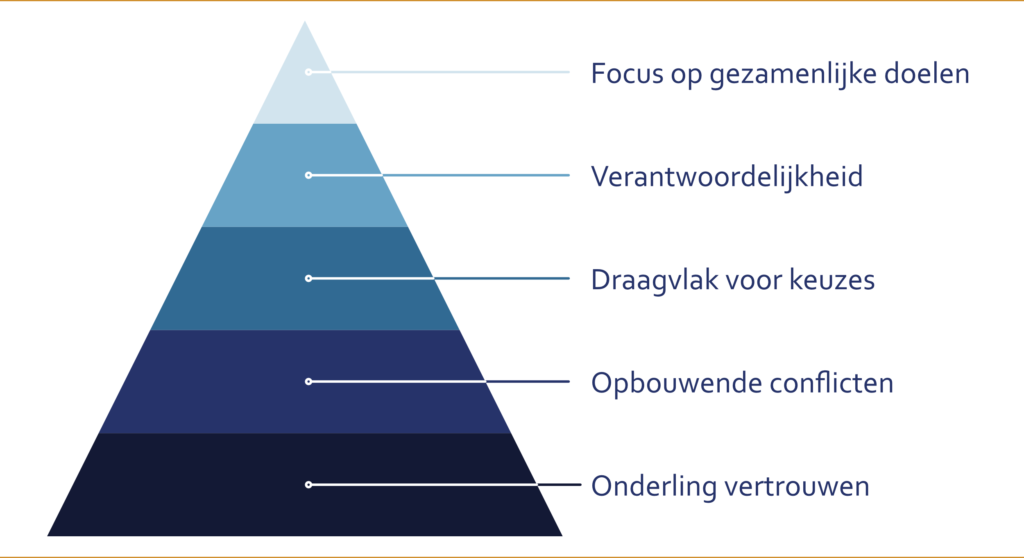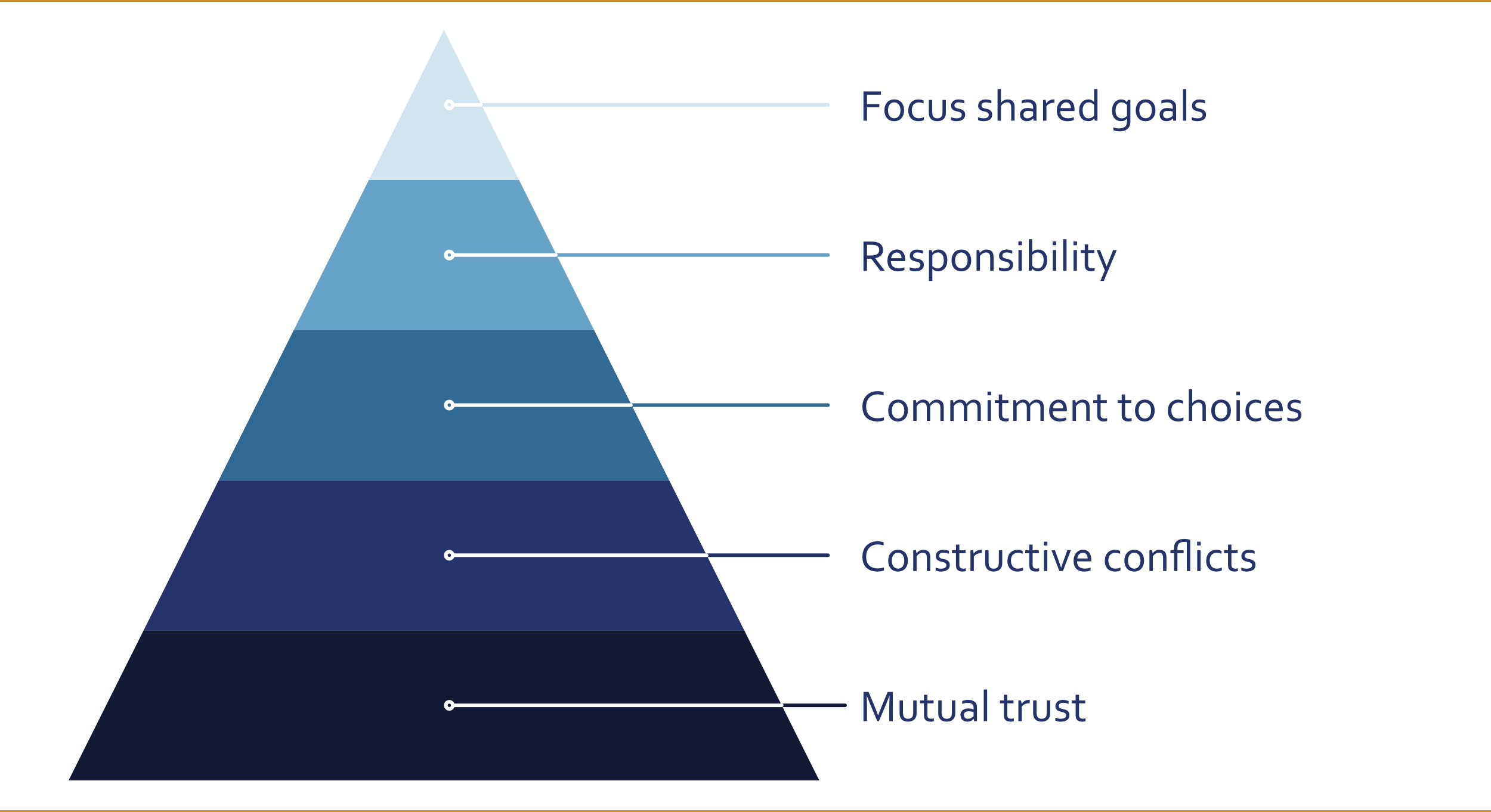Teamwork
Patrick Lencioni wrote an insightful book about teamwork: The Five Dysfunctions of a Team. He discusses five frustrations of teamwork, but actually five building blocks of teamwork: mutual trust, constructive conflict, support for choices, responsibility and focus on common goals.

1. Mutual trust
Trust is the foundation of well-cooperating teams. Without trust you cannot have a dialogue about the results of your plan and learn from it. Learning is only possible if you dare to be vulnerable and are open about your weaknesses and mistakes. Without trust, everyone turns green in their actions and strategies. And so you miss important signals to learn from. Trust starts with the leader of the team: set a good example and be vulnerable.
2. Constructive conflict
When discussing the progress of actions en strategies you learn from the results. Items that are orange or red are especially interesting, because these traffic lights are often a signal that things must be done differently. As a team you have to think about the possible options and decide what needs to change. Bringing together different perspectives often makes decisions better. Also, or perhaps especially, when these perspectives collide. In a 'constructive conflict' you discuss the advantages and disadvantages of the different ideas with each other in order to arrive at a good decision.
3. Commitment to choices
Any decision is better than no decision, because without decision no action. The best results are achieved by teams that dare to make choices and then commit to those choices. Stick to your plan! Unless you decide together that things have to be done differently. The search for consensus can be tempting to generate support, but often does not lead to the best decisions. Rather, make sure everyone's ideas are heard and taken seriously. This increases the chance that everyone will support the final choice, even if it were not their first choice.
4. Responsibility
As the owner of a strategy or action you are responsible for this. You are also the point of contact for the team. This means that the team must also be able to hold you accountable for progress and results. Accountability and accountability are hallmarks of successful teams. This may feel uncomfortable: “Mind your own business!”. But ultimately it actually contributes to the relationships and discipline of the team. It also contributes immensely to the results, as the feeling of not being able to let your team down improves the performance of all team members.
5. Focus on shared goals
No greater motivation than the result of your work. Shared goals are a great motivator for the team. It is important that these are clear, concrete and measurable, so that every team member strives for the same. It OGSM model This is one of the reasons why it is so powerful, because it contains concrete and measurable goals and indicators.
Get together regularly
As a bonus tip Lencioni tells us that it is important to meet regularly as a team. This contributes to all the building blocks of good teamwork. As a rule of thumb, we therefore use: discuss the progress of the actions every month en evaluate the strategies every quarter. It contributes to mutual trust. It is easier to discuss views and insights in real-time than through asynchronous communication such as email. It provides insight into what everyone is doing, how you can best coordinate this and how you can help each other.


